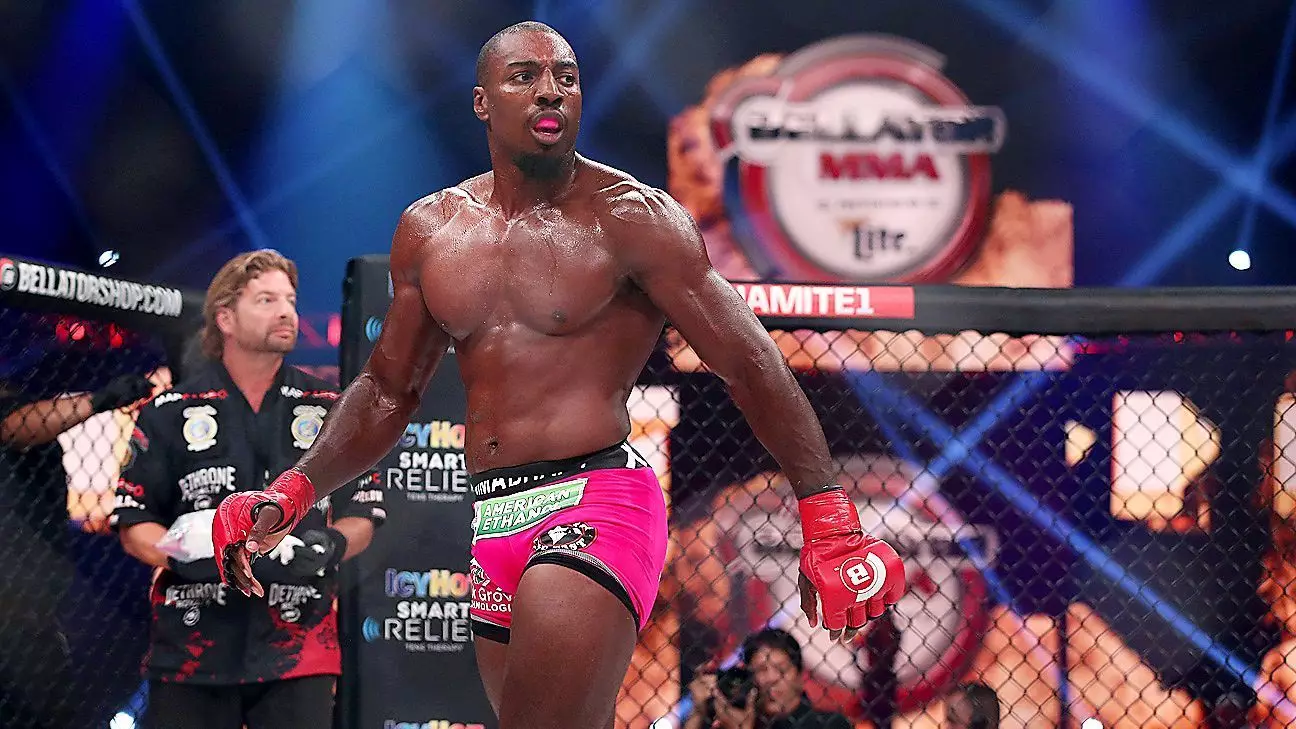In the ever-evolving landscape of mixed martial arts (MMA), veteran fighter Phil Davis has become an unexpected champion for his peers. Davis recently filed an antitrust lawsuit against the Ultimate Fighting Championship (UFC) in the U.S. District Court of Nevada, contending that the organization has maintained an unjust monopoly by stifling competition. This lawsuit comes on the heels of a significant $375 million settlement against the UFC for similar allegations related to fighter compensation, signaling a pivotal moment in the combat sports world and reflecting how athletes are increasingly willing to confront systemic issues within the industry.
Challenging the Status Quo
Davis’s lawsuit, brought forth by the prominent law firm Berger Montague, claims that the UFC’s practices adversely affect not only its contracted fighters but also those aspiring to enter the sport. According to Eric Cramer, the attorney representing Davis, the UFC’s tactics undermine the ability of rival promotions to attract top-tier talent and foster a thriving competitive environment. The contention is that the UFC’s dominance not only impacts salary negotiations for its fighters but creates a ripple effect that leaves athletes across the spectrum struggling for fair compensation.
This development raises essential questions about the long-term implications of the UFC’s stranglehold on the MMA market. When one organization controls such a vast majority of high-level talent, the implications are significant—not just for the fighters but for the entire sport. It can lead to stagnation, stifling innovation and growth in competition, which are typically the lifeblood of any professional sphere.
Legal Precedents and Their Implications
What sets Davis’s lawsuit apart is the timing and context. With the UFC embroiled in numerous antitrust cases spanning different timelines, there is a palpable sense of urgency and momentum building in the legal proceedings against the organization. The previous class action suit, which resulted in a monumental financial settlement for the fighters involved, sets a precedent indicating that the UFC may not be impervious to legal change.
Additionally, the current lawsuit aims to include provisions that would allow fighters to terminate contracts without repercussions after a year. Historically, these contracts bind fighters to lengthy terms, often keeping them underpaid and overworked. The intention behind this legal shift is not just to empower fighters but to redefine their relationship with promotions, enabling a more balanced dynamic within the sport.
A Call to Arms for Fighters
In a fervent declaration, Davis expressed his commitment to challenging the status quo, stating, “I am proud to stand up for professional MMA fighters to unlock the UFC’s stranglehold on the entire sport.” His words resonate deeply, as they encapsulate a growing discontent among fighters who feel trapped under exploitative conditions.
As the MMA industry approaches a potential crossroads, Davis’s actions may act as a catalyst for change, inspiring a collective movement among athletes to demand a fairer playing field. The UFC may soon find itself at a tipping point where fighters are not only regarded as commodities but as individuals deserving of their worth and autonomy.
The future of MMA hinges on this struggle for justice, and with warriors like Phil Davis leading the charge, there’s hope for a more equitable future in the sport. As these legal battles unfold, the implications for not just the UFC, but the entirety of mixed martial arts, could be profound.

